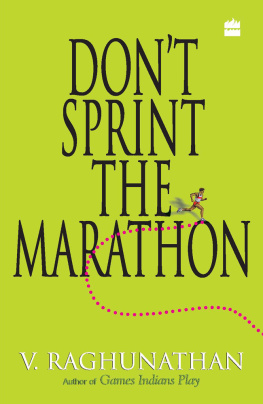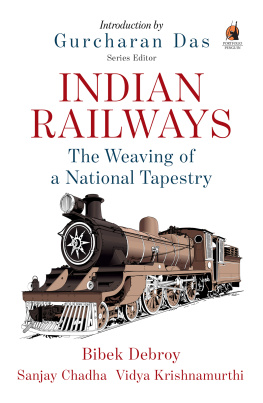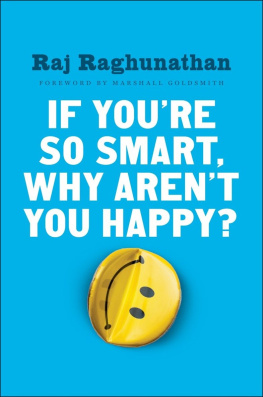Raghunathan writes really wellthere are rare instances where a reviewer thinks, I wish I could write like that. This is one of those instances Bibek Debroy in Indian Express
In a rare attempt to understand the Indianness of Indiansamong the most intelligent people in the world, but also, to a dispassionate eye, perhaps the most bafflingV. Raghunathan uses the props of game theory and behavioural economics to provide an insight into the difficult conundrum of why we are the way we are. He puts under the scanner our attitudes towards rationality and irrationality, selflessness and selfishness, competition and cooperation, and collaboration and deception. Drawing examples from the way we behave in day-to-day situations, Games Indian Play tries to show how in the long run each one of uswhether businessmen, politicians, bureaucrats, or just plain usstand to profit more if we were to assume a little self-regulation, give fairness a chance and strive to cooperate and collaborate a little more even if self-interest were to be our main driving force.
Read this absorbing book to figure out why we are like that only Debashis Basu in Money Life
What makes Raghunathans approach unusual is that his argument isnt a moral diatribe: He employs game theoryand related concepts such as prisoners dilemma, to present his case Knowledge@Wharton
The book goes a long way in showing us why we are wrong; we should be able to figure out how we can set it right Subhasis Gangopadhyay in Business Standard
A saddening but delightful book DNA
PORTFOLIO
GAMES INDIANS PLAY
V. RAGHUNATHAN was a professor of finance for nearly two decades, at IIM, Ahmedabad. In 2001 he joined the corporate world as president of ING Vysya Bank. At present he is a member of the top management in the GMR Group, an infrastructure major. Since 1990 he has also been a Visiting Professor at the University of Bocconi, in Milan, where his teaching interest in recent years has been behavioural finance.
Raghunathan has written over 400 academic papers and popular articles, and five books in the field of finance and investments. He also writes a regular guest column for the Economic Times.
Raghunathan boasts of what is probably the largest private collection of ancient locks in the country. He has also been a cartoonist briefly with a national daily, played chess at the all-India level and sketched competitively in the year gone by. To relax, he fixes mechanical clocks. He lives in India and can be contacted at
PRAISE FOR THE BOOK
Raghunathan tackles the peculiarities of Indianness using game theory and behavioural economics. Using everyday examples, he probes the reasons behind our conflicting tendencies.
Deccan Chronicle
Raghunathan bluntly challenges the reader to stand up to scrutiny He replays the fine art of unspoken inetiquette refined in India
Soumya Sitaraman in Deccan Herald
An incredibly interesting read
First City
The book takes the reader through some powerful insights into why we Indians need to introspect
The Analyst, The ICFAI University Press
Games Indians Pla y
Why We Are the Way We Are
V . RAGHUNATHAN
Foreword by N.R. Narayana Murthy
PENGUIN BOOKS
Published by the Penguin Group
Penguin Books India Pvt. Ltd, 11 Community Centre, Panchsheel Park, New Delhi 110 017, India
Penguin Group (USA) Inc., 375 Hudson Street, New York, New York 10014, USA
Penguin Group (Canada), 10 Alcorn Avenue, Toronto, Ontario, Canada M4V 3B2 (a division of Pearson Penguin Canada Inc.)
Penguin Books Ltd, 80 Strand, London WC2R 0RL, England
Penguin Ireland, 25 St Stephens Green, Dublin 2, Ireland (a division of Penguin Books Ltd)
Penguin Group (Australia), 250 Camberwell Road, Camberwell, Victoria 3124, Australia (a division of Pearson Australia Group Pty Ltd)
Penguin Group (NZ), 67 Apollo Drive, Rosedale, North Shore 0632, New Zealand (a division of Pearson New Zealand Ltd)
Penguin Group (South Africa) (Pty) Ltd, 24 Sturdee Avenue, Rosebank, Johannesburg 2196, South Africa
Penguin Books Ltd, Registered Offices: 80 Strand, London WC2R 0RL, Englan d
First published in Portfolio by Penguin Books India 200
This paperback edition published in 2007
Copyright V. Raghunathan 200
Foreword copyright N.R. Narayana Murthy 200
All rights reserve d
ISBN 978-01-4306-311-7
This Digital Edition published 2011. e-ISBN: 978-81-8475-002-7
Digital conversion prepared by DK Digital Media, India.
The views and opinions expressed in this e-book are the author's own and the facts are as reported by him which have been verified to the extent possible, and the publishers are not in any way liable for the same.
This e-book is sold subject to the condition that it shall not, by way of trade or otherwise , be lent, resold, hired out, or otherwise circulated without the publishers prior writte n consent in any form of binding or cover other than that in which it is published an d without a similar condition including this condition being imposed on the subsequen t purchaser and without limiting the rights under copyright reserved above, no part o f this publication may be reproduced, stored in or introduced into a retrieval system, o r transmitted in any form or by any means (electronic, mechanical, photocopying , recording or otherwise), without the prior written permission of both the copyrigh t owner and the above-mentioned publisher of this e-book .
Foreword
N.R. Narayana Murthy
Games Indians Play, Dr Raghunathans new book, is timely, and is an absorbing, illuminating study of the life and behaviour of Indians in the public sphere. It presents an economists view on what it means to be an Indian today. I consider it a pleasure and a privilege to write the foreword for this book.
India is, now, sixty years as a free country. Yet, today, many of the goals set during the time of Indias independence have not been realized. Our country faces multiple, urgent challenges of poverty, corruption and emerging social crises in health, education and population growth. Twenty six per cent of Indians remain below the poverty line, and 39 per cent of the country is illiterate. Public infrastructure in India remains either weak or non-existenta large segment of Indias population lacks access to the most basic resources. Over one-third of Indians lack access to clean water or proper sanitation facilities, and 30 per cent of the Indian population remains unconnected by a proper road. Corruption is pervasive in Indias institutionsclose to one per cent of the countrys GDP today is lost to bribes alone.
In his book, Raghunathan takes a novel perspective on Indias myriad economic and social challenges. He asserts that, while the resources to address Indias problems are available, serious problems persist due to apathy and a lack of public conscience among the Indian population. This, he notes, holds true for Indians across all walks of lifebe it the political field, the bureaucracy, the business sector or the salaried and working class.
Raghunathan examines Indian social behaviour through game theory and behavioral economics, and he relies particularly on the work of game theorists such as John von Neumann, Oskar Morgenstern and John Nash. For example, he uses the principle of prisoners dilemma to analyse the benefit of selfish versus cooperative strategies among individuals and to discuss the lack of concern among Indians for public infrastructure and facilities. Raghunathan points out that Indians view their fellow citizensincluding the authoritiesas apathetic (or selfish) towards public infrastructure, and consequently see maximum benefit in being apathetic as well. The cooperative strategy of maintaining infrastructure for good public use becomes increasingly unprofitable, as more and more people are seen as selfish. In such an environment, all people eventually pursue selfish strategies, and pursue routes that maximize personal gain at the expense of public good. Such an attitude has led, in the long term, to the present situation of public apathy for law and order, the fractured sense of public good and corruption across all sections of Indian society.








